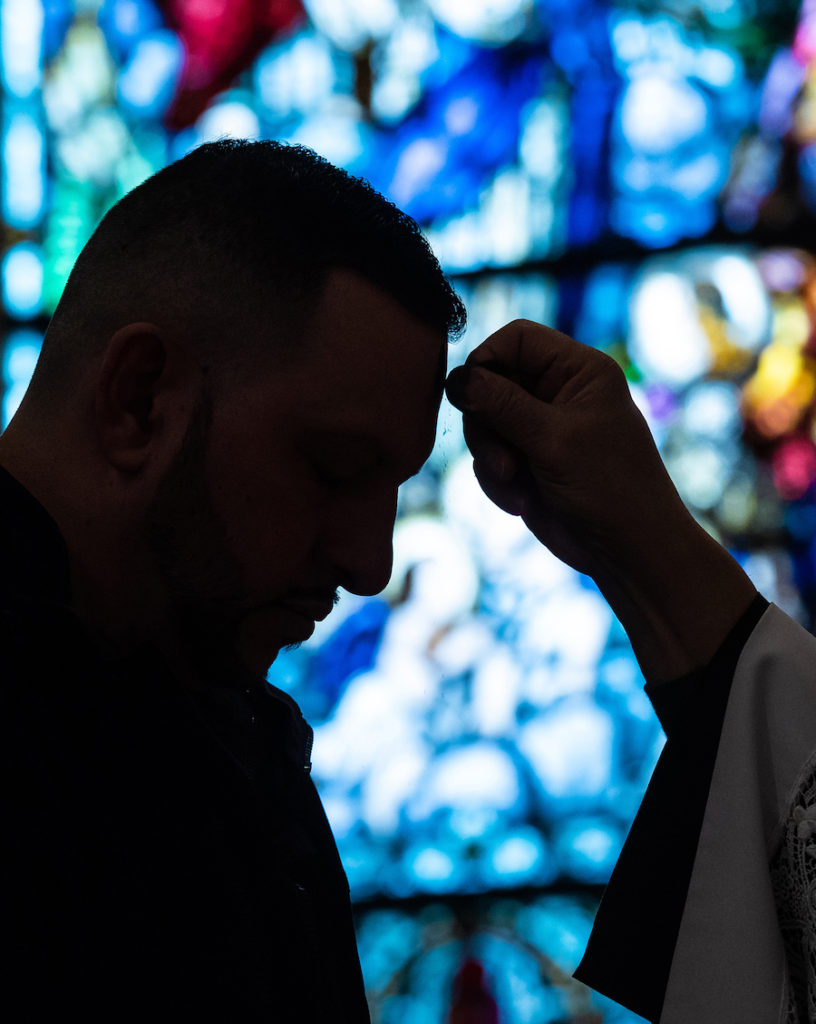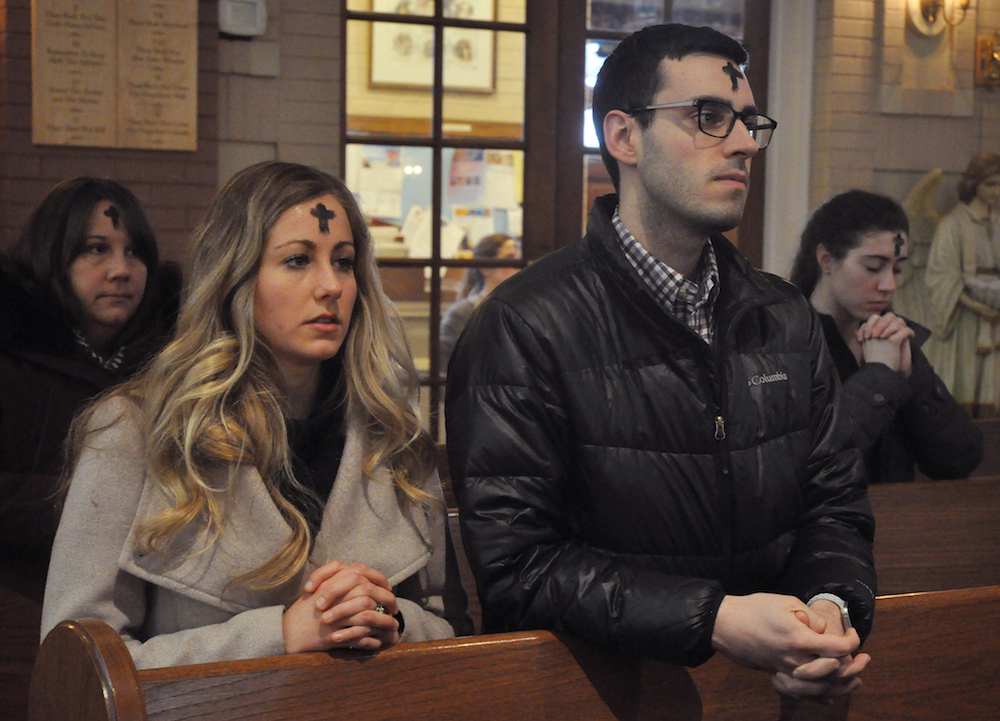About the time New Year’s resolutions begin to fade and gym memberships are mostly forgotten, Ash Wednesday reminds us that we’re called to make a fresh start. My cousin, the late Fr. Joe Curran, used to joke that the phone at the parish office rang continuously during the days leading up to Ash Wednesday. “People might commit murder, but they wouldn’t dare miss getting their ashes,” he used to chuckle.

There’s something wonderful about it, isn’t there? Right here in the midst of a post-modern culture that seems bent on self-destruction, ashes on the foreheads of the faithful are a visible reminder that we’re just passing through this world, on our way to the Father. We’ve sinned, and we need to repent. We’re made from dust, and unto dust we shall return, Botox and hip replacements notwithstanding.
We’re mortal. We’re frail. And we’re sinners in need of a Savior.
Ashes on the forehead are a sign that we regret our sinful ways and commit to following Christ more faithfully from here on out. In a world in which people often pride themselves on “having no regrets,” it’s admitting we have a few, or eight, or 50.
‘Hit the reset button’

Who among us isn’t inspired by those who leave behind lives of great sin and become deeply devout followers of Christ? They write books and grant interviews and wow us with their stories of conversion. But for most of us in the pews, repentance and conversion are more a matter of conquering chronic character defects that give rise to things like gossip, self-pity, holding grudges and aggressive driving. Hardly the stuff of high drama, and yet, over time, they drag us away from intimacy with God.
Ash Wednesday is an opportunity to hit the reset button and recommit ourselves to living the Gospel. What does that look like? St. Paul urges Timothy and the early Christian community to “Bear your share of hardship along with me like a good soldier of Christ Jesus” (2 Tim 2:3).
Having watched a son endure the rigors of the U.S. Marine Corps, I’ll attest to the fact that the training is formidable. After one particularly grueling ordeal, my son’s drill sergeant insisted the platoon run still more laps. To say they were upset would be a gross understatement — they were furious. But then they realized: The sergeant was a decorated war hero who was toughening them up for battle.
And that’s a great analogy to the spiritual life. While we walk this earth, we’re in the midst of a battle — the war between good and evil, life and death, truth and deception. The good news is that Christ has already won the victory. The less-welcome news is that we need to toughen up. Lent can help us do that through its three pillars of prayer, fasting and almsgiving.
Embrace the Lenten season
Living in an era of self-indulgence, those pillars are highly counter-cultural, but they are possible by the grace of God. It is His grace that gives us the desire to want to please Him, and His strength that carries our frail humanity.
What sacrifice will we commit to as Lent begins? What steps will we take to grow in holiness? Will we let another Lent pass us by, afraid of the silence, of being uncomfortable or un-busy? Or will we embrace the gift of Lent, of drawing closer to the One who knows our deepest wounds and longs to heal us?
As those blessed ashes are traced on our foreheads this year, let’s remember: We’re mortal. We’re frail. And we’re sinners in need of a Savior. May the Lord help us be courageous witnesses who die to selfishness so we can live to love and serve, enduring hardship as good soldiers of Christ.







